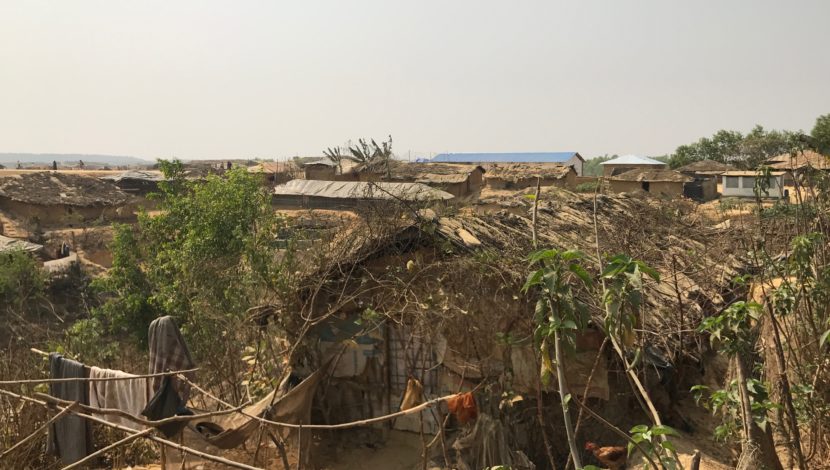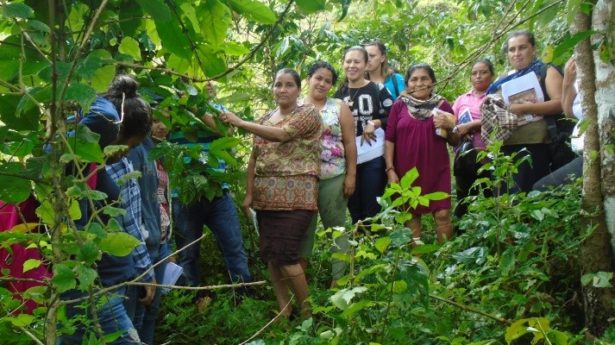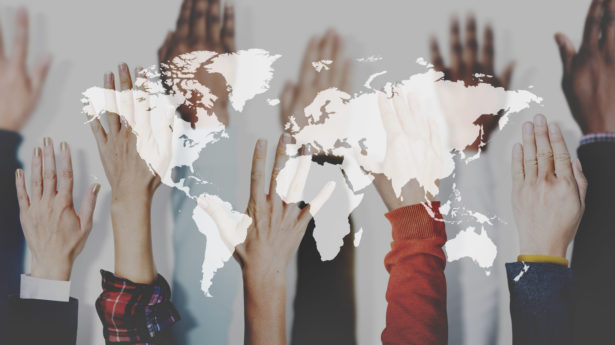The Unitarian Universalist Service Committee advances human rights through grassroots collaborations.
Three Ways the World Can End Genocide and Affirm the Dignity of All

By UUSC Staff on December 9, 2020
December 9 marks the fifth year since the United Nations designated it as the International Day of Commemoration and Dignity of the Victims of the Crime of Genocide. The day of remembrance has particular resonance for UUSC and its members given the organization’s founding as a rescue mission for Jewish children during the Holocaust. As we reflect on that founding mission and the international community’s promise of “never again,” we are confronted with the stark reality of the ongoing mass atrocities that are still being committed.
Nowhere is this more palpable than in Burma, where the Muslim minority Rohingya community have faced generations of discrimination, exclusion, and violence that culminated with the mass expulsion of more than 700,000 refugees to Bangladesh in 2017. Ongoing international legal efforts have been a bright sign for achieving some semblance of justice in the long-term, but the ongoing encampment of nearly a million refugees in Bangladesh, as well as the hundreds of thousands of internally displaced Rohingya remaining in Burma, makes clear how much more needs to be done. There are three practical actions that the international community can take to deliver on the promise of “never again” and uphold the dignity of Rohingya survivors of genocide.
Documentation
Key to stopping genocide is proving its existence and intent. UUSC supports ongoing efforts of grassroots activists to document human rights violations and atrocity crimes. Just this past month, the Burmese Rohingya Organisation United Kingdom (BROUK) released a key documentation report to coincide with the ongoing genocide case at the International Court of Justice, often refered to as the “World Court.” In its report, entitled “Dereliction Of Duty: International Inaction Over Myanmar’s Noncompliance With ICJ Provisional Measures,” BROUK documented key aspects of the ongoing genocide being commited against the Rohingya in Burma, including killings as well as systemic violations of the right to freedom of movement and restrictions on access to livelihoods and healthcare, which constitute imposing conditions of life intended to bring about the destruction of the group, in whole or in part—a key element of the crime of genocide.
Advocacy
Documenting abuses is only the first step, and using that information through strategic advocacy and communications is crucial to achieving changes in policies and practices. UUSC supports direct grassroots advocacy campaigns conducted by our partners at the domestic, regional, and international levels, including in the United States, Europe, Southeast Asia, and at the United Nations Human Rights Council. We also work in solidarity to mobilize our own UUSC constituency to push into action the U.S. government, which remains the largest donor of international aid on the Rohingya issue. Over the next year, key advocacy demands will include:
- Continuing to push the State Department to issue a formal genocide determination with regards to the situation of the Rohingya, which would increase global political support for the ongoing legal cases against the Burmese government across international courts;
- Ensuring that repatriation and relocation of Rohingya refugees from and within Bangladesh is done responsibly and under consultation with refugees themselves; and
- Shifting the nature of U.S. development support to include and prioritize justice and accountability programs at the grassroots level in Burma, Bangladesh, and across Rohingya refugee communities in the region.
Grassroots Community Development and Humanitarian Support
Support for grassroots-led community development and humanitarian relief is a crucial complement to human rights documentation and advocacy. Rohingya refugees and survivors of genocide have been excluded from nearly every decision about their lives and livelihoods, which only further victimizes them and perpetuates cycles of violence and discrimination. Since 2017, UUSC has committed to supporting Rohingya-led education and youth leadership initiatives among refugee communities around the world. By directly supporting the strengthening of Rohingya civil society and grassroots leadership, the international community can help cultivate a movement of activists and Rohingya leaders that are better equipped to advocate for self-determination, citizenship, and human rights.
As we look to commemorate the lives of those untold number of Rohingya who have perished under the greatest crime of genocide, UUSC is committed to honoring their dignity and that of the multitude of Rohingya genocide survivors remaining today to ensure that “never again” is grounded in substantive action for justice and accountability at the grassroots level.
***
About UUSC: Guided by the belief that all people have inherent worth and dignity, UUSC advances human rights globally by partnering with affected communities who are confronting injustice, mobilizing to challenge oppressive systems, and inspiring and sustaining spiritually grounded activism for justice. We invite you to join us in this journey toward realizing a better future!
Photo Credit: Tom Andrews

